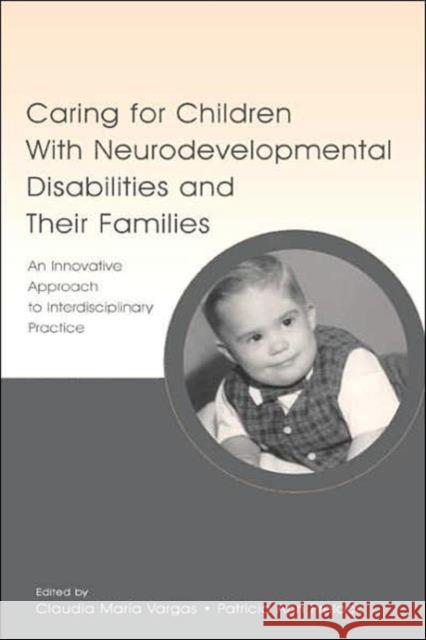Caring for Children with Neurodevelopmental Disabilities and Their Families: An Innovative Approach to Interdisciplinary Practice » książka
Caring for Children with Neurodevelopmental Disabilities and Their Families: An Innovative Approach to Interdisciplinary Practice
ISBN-13: 9780805844764 / Angielski / Twarda / 2004 / 184 str.
Caring for Children with Neurodevelopmental Disabilities and Their Families: An Innovative Approach to Interdisciplinary Practice
ISBN-13: 9780805844764 / Angielski / Twarda / 2004 / 184 str.
(netto: 674,98 VAT: 5%)
Najniższa cena z 30 dni: 653,11
ok. 16-18 dni roboczych.
Darmowa dostawa!
Children with neurodevelopmental disabilities such as mental retardation or autism present multiple challenges to their families, health care providers, and teachers. Professionals consulted by desperate parents often see the problems from their own angle only and diagnosis and intervention efforts wind up fragmented and ineffective. This book presents a model multidisciplinary approach to care--family-centered and collaborative--that has proven effective in practice. A pillar of the approach is recognition of the importance of performing culturally competent assessment and adjusting service delivery so that is responsive to cultural differences.
Detailed case stories illuminate the ways in which the approach can help children with different backgrounds and different disabilities. Most chapters include study questions, lists of resources, and glossaries to facilitate easy comprehension by professionals with different backgrounds--in special education, communication sciences, and disorders, clinical and counseling psychology, neuropsychology and psychiatry, social work, pediatrics--and program administrators as well as students, trainees and educated parents. Caring for Children With Neurodevelopmental Disabilities and Their Families constitutes a crucial new resource for all those professionally and personally concerned with these children.
Children with neurodevelopmental disabilities such as mental retardation or autism present multiple challenges to their families, health care providers, and teachers. Professionals consulted by desperate parents often see the problems from their own angle only and diagnosis and intervention efforts wind up fragmented and ineffective. This book presents a model multidisciplinary approach to care--family-centered and collaborative--that has proven effective in practice. A pillar of the approach is recognition of the importance of performing culturally competent assessment and adjusting service delivery so that is responsive to cultural differences.
Detailed case stories illuminate the ways in which the approach can help children with different backgrounds and different disabilities. Most chapters include study questions, lists of resources, and glossaries to facilitate easy comprehension by professionals with different backgrounds--in special education, communication sciences, and disorders, clinical and counseling psychology, neuropsychology and psychiatry, social work, pediatrics--and program administrators as well as students, trainees and educated parents. Caring for Children With Neurodevelopmental Disabilities and Their Families constitutes a crucial new resource for all those professionally and personally concerned with these children.











